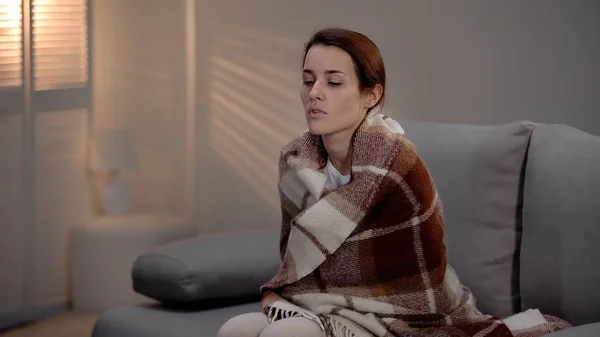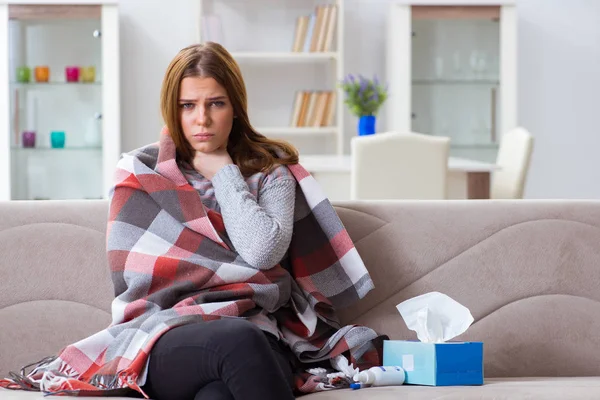Feeling cold all the time can be more than just a minor annoyance; it can be downright frustrating and sometimes even worrisome. While some folks are naturally more sensitive to cooler temperatures, if you’re consistently chilly, it might signal something deeper—like health issues or lifestyle habits. Let’s look at the common reasons you might always feel cold, why women often feel colder than men, some quick tips to warm up at home, and when it’s time to reach out to a doctor.

Why Am I Always Cold? Common Causes
Dr. Hussain Ahmad, MUDr, MD, a consultant at Click2Pharmacy, sheds light on why you might be feeling like a human popsicle. Here are some of the usual suspects:
1. Anemia
Anemia happens when your body doesn’t have enough healthy red blood cells to carry oxygen around efficiently. This lack of oxygen can leave you feeling cold, especially in your hands and feet. You might also notice other signs like fatigue, pale skin, or a racing heartbeat.
2. Hypothyroidism
Your thyroid gland is crucial for regulating metabolism and body temperature. If it’s not doing its job properly—a condition known as hypothyroidism—you could find yourself feeling unusually cold. Other symptoms may include thinning hair, dry skin, weight gain, and an overall sense of fatigue.
3. Raynaud’s Disease
This condition causes your blood vessels to overreact to cold or stress by constricting too much. As a result, your fingers and toes might turn white or blue before eventually warming up again. It can be quite uncomfortable!
4. Vitamin Deficiencies
If you’re low on essential vitamins like iron or B12, it can impact your circulation and make it harder for your body to stay warm. You might also experience numbness or tingling in your extremities if these nutrients are lacking.
5. Dehydration
Staying hydrated is key to keeping your body temperature stable. When you’re dehydrated, your body focuses on keeping your internal organs warm by reducing blood flow to your extremities—making you feel even colder.
6. Gender Differences
It’s true: women often feel colder than men! This is partly due to physiological differences; women generally have less muscle mass (which helps generate heat) and more fat around their internal organs rather than their limbs. Hormonal changes can also play a role in how temperature is perceived.
How to Warm Up Fast at Home
If you’re tired of shivering, here are some simple ways to warm up quickly:
1. Dress in Layers
Layering is your best friend! Wearing multiple layers traps heat close to your body. Thermal tops, cozy wool socks, and gloves can make a world of difference. And don’t forget a hat—keeping your head warm helps retain heat!
2. Sip Warm Beverages
Nothing beats a hot drink on a chilly day! Sipping tea or coffee not only warms your hands but also raises your core temperature from the inside out. A nice bowl of soup can also do wonders for warming you up.
3. Take a Warm Bath
A warm bath or shower is not only soothing but can also help elevate your core temperature quickly while improving circulation. Plus, it’s a great way to unwind after a long day!
4. Stay Active
Getting moving can help generate heat naturally! Try light exercises like walking or stretching to get that blood flowing and warm yourself up.
5. Use Heating Pads or Blankets
Heating pads or electric blankets are fantastic for targeting specific areas that feel particularly cold—like your hands and feet—while you relax on the couch or in bed.
When to See a Doctor for Always Being Cold
While it’s normal to feel cold occasionally, if you’re constantly chilly or experiencing severe symptoms, it might be time to consult with a healthcare professional.
When should you reach out?
- If you’ve suddenly become more sensitive to cold.
- If you notice other symptoms like fatigue, dizziness, tingling in your hands or feet, or confusion.
- If you’ve tried dressing warmly but still feel cold all the time.
Dr. Jennifer Caudle, DO FACOFP – TV Health Expert, recommends seeking medical advice if these symptoms worsen over time or start interfering with your daily life. Your doctor may suggest tests like blood work or thyroid function assessments to get to the bottom of things.
Emergency situations: If you ever experience extreme coldness along with confusion or loss of consciousness, don’t hesitate—seek immediate medical help!
Final Thoughts
Feeling cold all the time isn’t just an inconvenience; it could point to something more serious lurking beneath the surface. Whether it’s anemia, hypothyroidism, or simply not drinking enough water, figuring out the cause is essential for finding relief.
In the meantime, try layering up, staying active, and enjoying those warm beverages to keep the chills at bay! And remember—if these tips don’t help or if anything feels off, don’t hesitate to reach out to a healthcare professional for guidance. Stay warm out there!
Also Read | Persistent Pain After Tooth Extraction? Dry Socket Warning Signs










